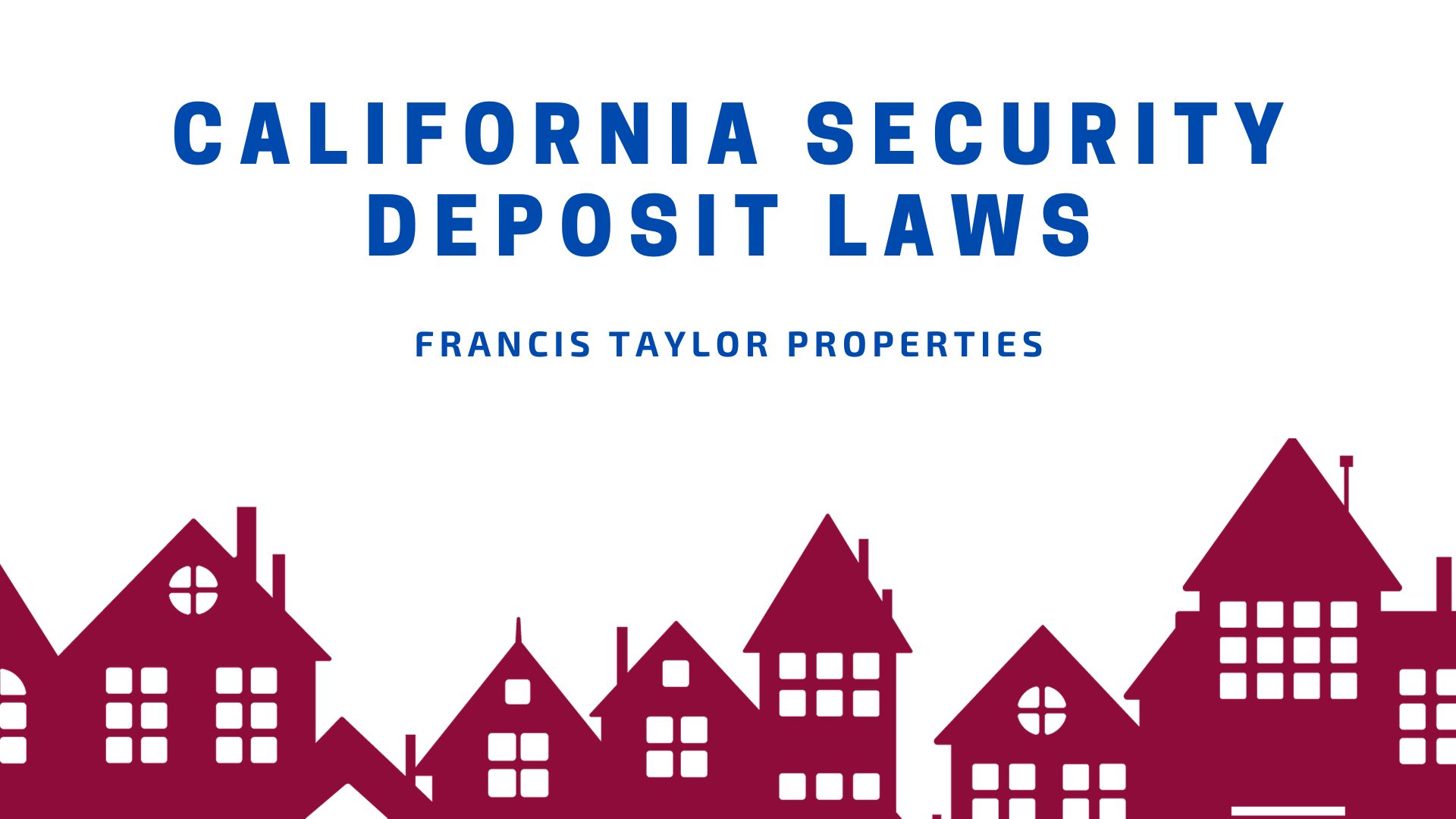California's security deposit laws outline the rights and responsibilities of both the landlord and tenant, covering various aspects such as the amount of the security deposit, the timeline for its return, and permissible deductions as per the rental agreement. These laws ensure that each landlord has clear guidelines to follow while providing tenants with protections for their deposits.
By being informed about these landlord-tenant regulations, individuals involved in the rental market can foster a more transparent and cooperative living arrangement, promoting a fair and balanced housing experience for all parties involved.
In this blog post, we will provide an overview of California's security deposit laws, shedding light on key provisions that shape the landlord-tenant dynamic and can affect the rental agreement.
Let's get started and go over the California law!
Benefits of Collecting Security Deposits from Tenants
Collecting a security deposit offers the following benefits:
Financial Security
Security deposits provide every landlord with a crucial financial safety net. In case of property damage beyond normal wear and tear or missed rent payments, the security deposit can be used to cover these costs, ensuring the landlord is not left financially burdened. This protection allows the landlord to maintain the property in good condition while reinforcing the tenant’s accountability throughout the lease term.
Property Maintenance
The presence of a security deposit under California law encourages tenants to maintain the property in good condition. Knowing that their security fee is at stake, tenants are likely to be more conscientious about taking care of the premises.
Risk Mitigation
Every landlord faces various risks when renting out their property, and may even have to face the small claims court.

Deposits help mitigate these risks by offering a form of compensation if the tenant breaches the lease agreement or damages the property.
Tenant Accountability
Security deposits create a sense of accountability for tenants. Knowing that their security fee is refundable upon meeting the terms of the lease, tenants are motivated to fulfill their obligations, such as paying the months rent on time and respecting the property.
This encourages tenants to take care of the rental space and ensures they remain responsible for timely months rent payments, helping maintain a positive relationship between the tenant and landlord.
Covering Unpaid Rent
If a tenant defaults on rental payments, the security deposit can be used to cover any overdue rent. This is particularly valuable in situations where legal actions may be required to recover rental arrears. The maximum security deposit is twice one month's rent in most places, so it should be covered.
Cleaning and Repairs
A landlord can use the security deposit to cover the costs of cleaning and repairs beyond normal wear and tear when a tenant moves out. This ensures that the property is in suitable condition for the next tenant without security deposit disputes.
Deterrence for Lease Violations
The existence of a security deposit acts as a deterrent against lease violations as it's often more than one month's rent. The tenant is more likely to adhere to the terms of the lease agreement to secure the return of their deposit.
Streamlined Move-Out Process
Deposits facilitate a smoother move-out process. The landlord can assess the property's condition, deduct necessary costs, and return the remaining deposit promptly, streamlining the transition between each tenant.
Encourages Responsible Tenancy
By requiring a security deposit, landlords encourage responsible tenancy and the proper payment of monthly rent.

A tenants is more likely to respect the property and adhere to lease terms when they have a financial stake in the form of a deposit. For a landlord, it'll save money from a month's rent missed and legal fees.
Legal Compliance
Collecting a security deposit ensures that landlords comply with legal requirements. Understanding and following the applicable regulations regarding deposits helps landlords avoid legal issues and disputes with a tenant.
Here's a Guide to California Security Deposit Law
Here is an overview of California security deposit law:
California Security Deposit Limit
California does not impose a legal limit on the maximum security deposit amount. However, charges must be reasonable, and landlords should adhere to fair practices when determining deposit values and just account for wanting to cover overdue rental payments if the event arises.
Nonrefundable Fees
Landlords in California can charge nonrefundable fees, but these must be clearly outlined in the lease agreement. Returning deposits are necessary, nonrefundable fees are not.
These may include fees for cleaning, which should only be charged if necessary to restore the unit to its initial condition of the rental property.
Storing a Tenant's Deposit in California
Landlords must keep deposits in a separate trust account. There is no specific limit on how much a landlord can charge for damages, but charges must be reasonable if the tenant was good and always managed to pay rent.
Written Notice after Security Deposit Receipt
Upon receiving a security deposit, the landlord must provide the tenant with a written notice that includes the amount received, the location of the money, and the tenant's rights. This transparency promotes a clear understanding of the financial transaction.
Reasons to Withhold a Tenant's Security Deposit in California
Landlords can deduct from the security deposit for unpaid rent, damages beyond normal wear and tear, cleaning costs, and restoration costs specified in the lease.
.jpg)
If damages exceed the deposit, landlords can seek additional compensation.
A Walk-Through Inspection
Tenants have the option for an initial inspection before the end of the lease. If requested, the inspection must take place within the last 14 days of the lease term with a 48-hour written notice.
Security Deposit Refund in California
Landlords must return the security deposit, if due, with a written list of damages, if any, no later than 21 days after the tenant has moved out. If an initial inspection is conducted, the landlord must provide an itemized statement of repairs or cleaning the tenant may complete.
Change in Property Ownership
In the event of a change in property ownership, the landlord must either transfer the security deposit to the new owner and handle it according to the same rules or return the security deposit to the tenant minus any allowable deductions. Proper documentation and communication are essential in such transitions.
Bottom Line
For landlords, the benefits of collecting security deposits are numerous, providing financial security, encouraging property maintenance, and fostering responsible tenancy. The law ensure that security deposits are handled in a manner that respects the rights of both parties, with clear guidelines on limits, deductions, and return timelines.
For personalized assistance and expert insights into California's real estate landscape, contact Francis Taylor Properties today. Francis Taylor Properties is your trusted partner in achieving a smooth and lawful rental experience.



